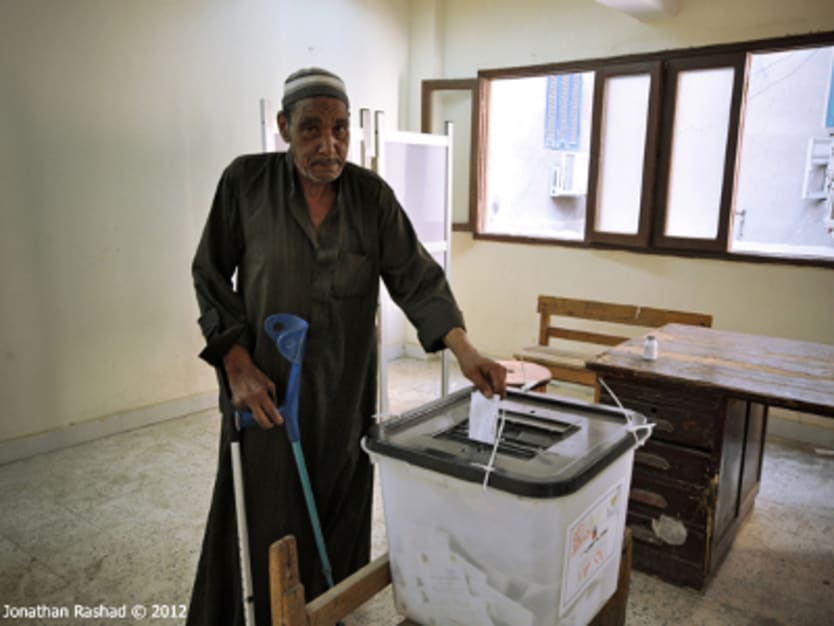
The future of nongovernmental organizations in Egypt continues to hang in the balance even after the conclusion of the country’s presidential elections, a step many activists and citizens had hoped would pave the way for an end to military rule.
The Muslim Brotherhood has declared victory at the final round of the elections, saying its candidate, Mohammed Mursi, gathered 52 percent of almost all votes, BBC reports. But official results won’t be in until Thursday (June 21).
Mursi’s win, if made official, would have been a triumph for the Brotherhood, which also won most of the seats in parliament. But actions taken by the Supreme Council of the Armed Forces days into and following the elections had reduced the Islamists’ potential hold on power.
Before the elections, SCAF dissolved the Brotherhood-led parliament, with backing from the Supreme Constitutional Court, which called last year’s legislative elections “unconstitutional.” SCAF also issued an interim constitution that gives it overarching powers hours after polls closed Sunday (June 17).
Some of the powers they bestowed upon themselves include control over the national budget and who writes Egypt’s permanent constitution. They’ve also taken the liberty to do the task of the now-defunct parliament.
These developments do not bode well for NGOs in Egypt, especially those advocating for democracy and civilian rule.
The United States, which had a row with Egypt following the country’s crackdown on NGOs, has yet to make a statement on the latest move by SCAF. But U.S. Secretary of State Hillary Clinton voiced her concern Thursday (June 17) over SCAF’s “recent decrees,” saying they “appear to expand the power of the military to detain civilians and to roll back civil liberties.”
Read more news on Egypt and development aid online, and subscribe to The Development Newswire to receive top international development headlines from the world’s leading donors, news sources and opinion leaders — emailed to you FREE every business day.
